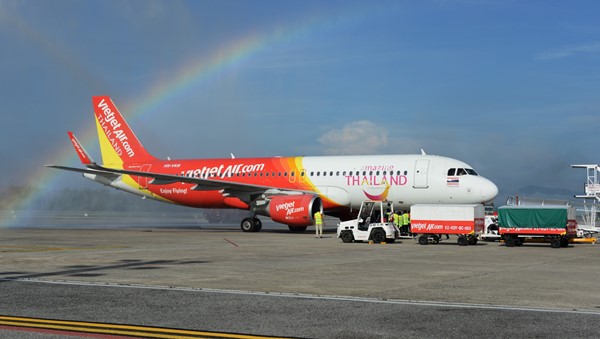Who Pays for Teacher’s Work Permit in Thailand? Teacher or School?
As a westerner who worked in Bangkok for more than 8 years, I’ve had my fair share of work permits in the Land of Smiles. All off my work permits in Thailand, and the visas I had to get along with them, were paid for by the schools I worked for, so the only outlay I usually had was the initial payment for the non-immigrant B visa. The cost of that was then usually refunded along with my first pay check.
Other teachers in Thailand, however, are not always so lucky and have to pay for the cost of the work permit themselves. In fact, recently, the vast majority of teachers I’ve met in Thailand have told me they have had to foot the bill for the work permit and non-immigrant B visa, as their school refused. As that is currently 3,100 baht ($100), it can be quite a large amount for a teacher who has just arrived and has other start-up costs in Thailand to think about.
That’s why it pays to sign a contract with a school that will pay for the cost of your work permit, but do most schools normally do this and how do you know the ones that will?
Read the job advertisement carefully – One thing I discovered quickly when I started to interview with schools in Bangkok was the ones that paid for the work permit and the visa that goes along with it usually mentioned that they did in the job advertisement I applied to. After all, it’s one more positive thing added to the package of perks they offer.
Schools that don’t pay for their teachers’ work permits, however, simply don’t mention the work permit at all in their advertisement for any available teaching positions, as I found out during my first job interviews. You’ll also see that in many of the job listings on Ajarn, Thailand’s best job board for teachers.
If having the work permit paid is important to you, start off by only applying to schools that mention this.
What percentage of schools pay for work permits? – In my experience and those of the other teachers I know, if a school is getting you a work permit (many don’t as they just allow their teachers to work illegally), less than 40 percent seem to pay for them.
Related: Who pays when getting a work permit for teaching in Thailand?
When I interviewed for my first teaching position, out of the five schools I had interviews with in Bangkok only one school didn’t pay, but that was 12 years ago and things have definitely changed. As that was also the school that offered a higher salary than any of the others, the lack of payment for the work permit wasn’t an issue for me.It might be for you, however.

Don’t forget to consider other factors besides a paid work permit – Some western teachers newly arrived in Thailand get upset when they are told the school they are about to sign up with will not pay for their work permit.
In this situation, you should weigh up all the other factors about the job before deciding you are not going to sign the contract due to a relatively ‘minimal’ $100 work permit fee. That’s because, while a school may not pay for the work permit, the salary they are offering may be higher, they might pay for more vacation time, give you a monthly housing allowance, offer extra classes at an extra hourly rate and on and on.
Sure, they may not pay the $100 for a work permit, but chances are you can more than make up that money during your first month of teaching alone.
Things in Thailand are rarely cut and dried, and what may seem like a negative situation at first look can easily turn into one of the best situations you have ever been in, as long as you spend the time necessary to assess it properly before flouncing out in protest.
Negotiation – Finally, if you feel strongly about a school paying for your work permit in Thailand, you can always try to negotiate with the school and hope they will agree. If you are a candidate that has qualifications others don’t, or they’re in a tight spot and need a teacher quickly, you can sometimes negotiate payment of the work permit.
I negotiated successfully for my work permit costs at one school when the owner of the school let slip that I was the only female candidate they had for the job, and the parents had wanted a female teacher to teach their children for a while.
Once he’d said that, and because it was a private school, I knew I could get the school to pay for the work permit so I proceeded to negotiate. The owner of the school folded quickly, and I got what I wanted, but even with negotiations that isn’t always the case.
Just remember, if you do decide to negotiate for the cost of your work permit at any school in Thailand, do it politely and calmly and never let the other person ‘lose face’.
After all, this is Asia and If he does, you have already lost meaning not only will you not get your work permit paid for, but it would be highly unlikely for you to get the teaching job either.








